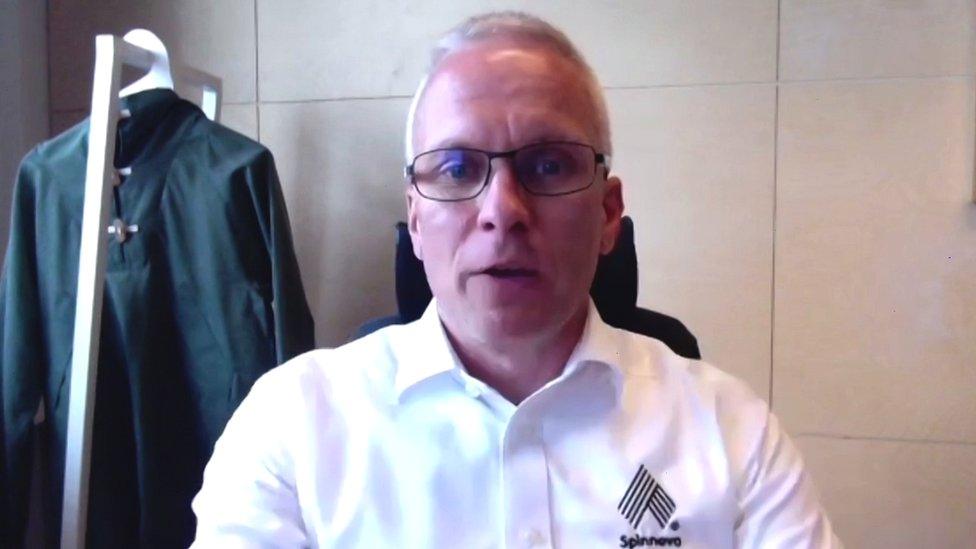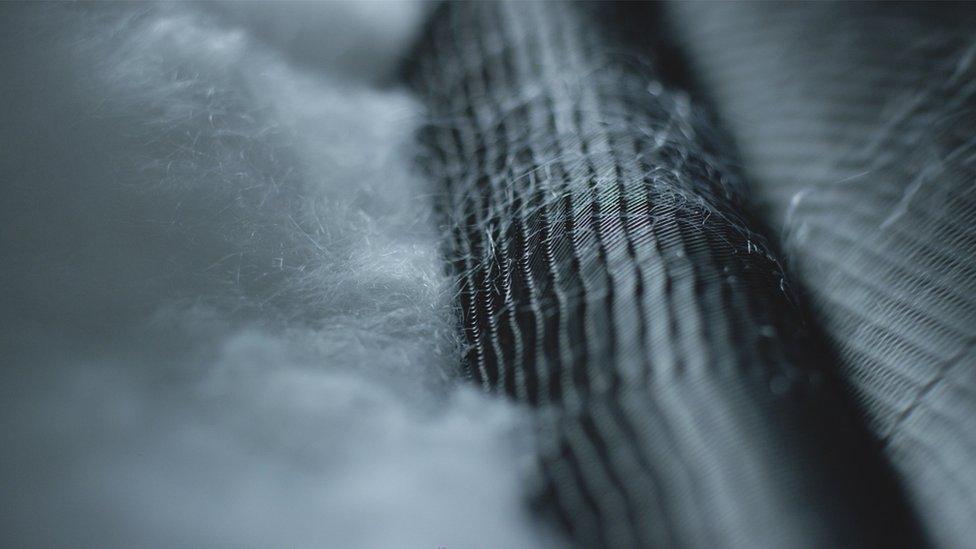CEO Secrets: 'Don't sell your technology too early'
- Published
"Don't sell your technology too early"
"If you have an invention, don't sell your technology too early to anyone," says Finnish inventor Janne Poranen. "Hold out for the biggest customer you can find, and that way you will get the best price."
Mr Poranen, who is chief executive of a firm called Spinnova, spent six years developing a new type of fibre for clothes made out of waste products such as wood pulp, and then a further six years waiting for the right partners to come along to make use of his break-through technology.
He has now signed deals with giant clothing firms H&M and Adidas to use the new textile in some of their garments.
Spinnova's fabric is a thread, like cotton. But unlike cotton it does not need huge amounts of water and chemical additives to produce.
"We are the only one who can produce the textile fibres without any chemical dissolving process," says Mr Poranen. "We can make the textile out of any type of biomass - wood pulp, straw and even old clothes. We are revolutionising the whole textile industry."
Spinnova's textile is made by breaking down the biomass into micro-scale fibres and then aligning them in a chain, so that they can be drawn out through a tiny nozzle into a cotton-like thread.

"My co-founder Juha Salmela was inspired by a university lecture in which a biologist described how a spider produces silk from its body to make a web. We spent years in a Finnish government laboratory learning how to mimic this process.
"The secret lies in aligning the micro-fibres exactly so that the thread can be extruded smoothly as it goes through the nozzle," he says.
In 2015, Mr Poranen and his fellow researchers established Spinnova and recruited financial backers to be shareholders. They then went into the market, looking for manufacturers who wanted to use their process. The first bidders were minor firms, including one making fishing nets. But they also wanted exclusive rights over the technology.
"We were not prepared to give any small company exclusivity because we wanted our technology to spread through the textiles industry on a global scale," says Mr Poranen.
One problem was working out how long they could afford to wait for a big offer to come along. What would happen if they turned down a potential partner and then did not get any better offers than the one they had refused?

"The secret lies in aligning the micro-fibres exactly," says Janne Poranen
Luckily, says Mr Poranen, the shareholders were prepared to wait.
"In an average start-up, when you at a very early stage, then of course you are thinking extremely carefully about what you are losing if you are not taking that money in," he says. "And maybe some shareholders can even say we should take that money in, to go forward.
"It is not easy to convince shareholders that you will finally get the big deal. So even if people are asking all the time to realise the profits, you have to convince them it will take some years but things will come good in the end."
Finally, Spinnova convinced multinationals Adidas and H&M to look into making garments from their fibre.
"They are the best brand partners to take it to the global scale," says Mr Poranen. "They are looking at making such things as coats."
Mr Poranen's advice to young inventors is not to sell their inventions short.
"When you get offers always think to yourself 'what is my big goal? It is so easy to make huge mistakes at the beginning and [accept] the wrong kind of proposals."